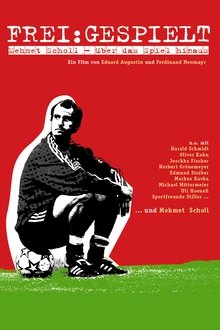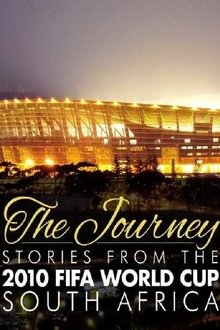Pat Patterson and those who knew him best look back at his unlikely path to the top of sports-entertainment. From growing up a poor kid in Montreal, to finding fame in San Francisco and New York City and working side-by-side with Vince McMahon, Pat became the celebrated creative force behind some of the greatest moments and matches in WWE history.
Related Movies
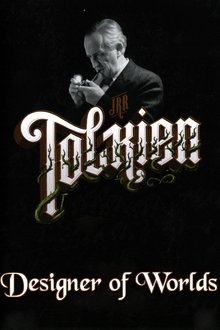
J.R.R. Tolkien: Designer of Worlds (2014)
This is a story of a seemingly quiet and unobtrusive man, author of a colossal and partly unfinished literary work. We will try to trace back to the origins of his inspiration so as to understand why his work met and still meets with so much success. How did JRR Tolkien manage, through the power of words alone, to so widely instill wisps of magic in the midst of a particularly disenchanted 20th century?
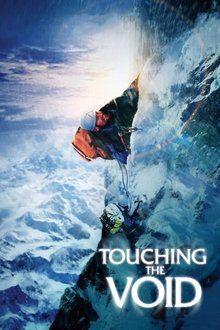
Touching the Void (2003)
The true story of Joe Simpson and Simon Yates' disastrous and nearly-fatal mountain climb of 6,344m Siula Grande in the Cordillera Huayhuash in the Peruvian Andes in 1985.
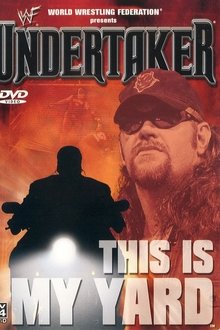
WWF: Undertaker - This Is My Yard (2001)
The prowess and persona of WWF pro wrestling star the Undertaker are chronicled in this look at the territorial bad boy, who defends his turf against all comers. The program covers the career of the Undertaker, who has been in the business for over a decade. It follows the development of his skill and on-stage personality, which has made him on of the most recognizable and popular stars of the circuit. Archival film clips, photographs, and interviews with friends, fans, coaches, and fellow wrestlers tells the colorful story of the Undertaker. This Video/DVD covers all the different aspects of the Undertakers WWF career, from the first day at WWF Survivor Series 1990, The Ministry and the American Bad Ass gimmick. With interviews from, Lita, Matt Hardy, Hardcore Holly, Kane, Edge, Chris Jericho, X-Pac and many more WWF superstars, giving their thoughts on the ‘Deadman’.

The Rock - Just Bring It! (2002)
The Rock, the most electrifying man in sports-entertainment, brings it to you! Just Bring It! epitomizes how The Rock feels about life. Whatever the challenge, he always says... Just Bring It! It's time to go one-on-one with the "Great One"! Includes highlights from his most significant matches of the past year (June 2000-August 2001). Follow The Rock on the road and get insight into the dedication and attitude that make him one of the best the World Wrestling Federation has ever seen. Then go behind the scenes of the filming of Universal Pictures' The Scorpion King starring The Rock. When it's all over, you'll understand why The Rock says... Just Bring It!

MTV’s Behind WWF Tough Enough (2002)
They were Tough Enough. Are you? Too much is never enough. So take an inside, uncensored look at the blood, sweat, and fears of those who laid it all on the mat for a chance to win a WWF contract. From the audition tapes of those who never had a chance, to the bumps, bruises, and battles of those who did, you'll see what was really going on in and out of the ring. Plus, hear the advice, the stories, and the painful truth from all your favorite WWF superstars?, including Stone Cold Steve Austin?, Mick Foley?, Triple H? and more, and ask yourself: "Would I be tough enough to win wrestling's ultimate prize?"

WWF: Undertaker The Phenom (1998)
The Phenom of the WWE leads you on a journey to the Dark Side highlighting his most recent battles! The discovery of Kane's existence, the fiery horror of the Royal Rumble 1998 casket disaster, his wars with Mankind, the betrayal of Paul Bearer...it's all here and more! Also contains footage and interviews which show you a side of the Undertaker never seen before!
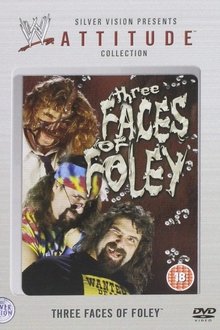
WWF: Three Faces of Foley (1998)
What do the faces of Foley think about the Three Faces of Foley? "It's like Titanic wrapped in barbed wire! Bang Bang!" - Cactus Jack "OWWWW, It's the feel good hit of the season!" - Dude Love "I laughed, I cried, I had a nice day" - Mankind

WWF: The Rock - Know Your Role (1998)
He "Laid the Smackdown!" He's been both the "People's" and the "Corporate" champ! He gave the world "Roody Poo!" Now, you can being home a piece of The Rock!, The Great One! Find out how The Rock has become the most electrifying name in sports-entertainment today. This isn't "Sing Along with the Champ!" So sit down, Shut Up and watch the damn tape... and Know Your Role ! This DVD is exclusively for the millions and millions of The Rock's Fans "if ya smell what The Rock is cookin!"
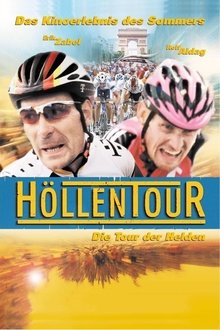
Hell on Wheels (2004)
Year after year hundreds of thousands of fans line the route of the Tour de France, cheering on their heroes and willing them to victory, while millions of viewers worldwide tune in on their televisions. Academy Award-winning director Pepe Danquart, fascinated by the spectacle of the three week race, chose to focus on the courage, the pain and the fear of the riders of the Tour. Training his lens on German superstar sprinter Eric Zabel and his loyal domestique Rolf Aldag, Danquart captures the thrill of the race and the teamwork behind the stars of the peleton. He also shines light on the Tour's supporting cast - the director sportifs, masseurs, and, of course, the wildly enthusiastic fans. Reveling in the stunning landscape - from the Alps to the Pyrenees to the Massif Central to Paris - and with a nice dollop of Le Tour's history, HELL ON WHEELS transcends the sport it celebrates to reveal an astonishing human endeavor.
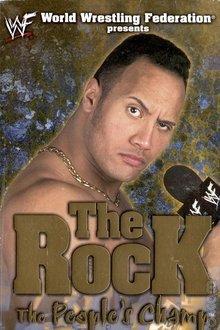
WWF: The Rock - The People's Champ (2000)
You're gonna see The Rock go through 'em all... The Undertaker with all his little rinky-dink tattoos. Then The Rock goes through Triple H like prune paste. See The Rock take on Badd A$% Billy Gunn, a nothin', a nobody, a peon to The Rock. Then onto Mankind, a guy The Rock doesn't like, but he respects, and the illustrious tag team of The Rock 'n' Sock Connection. Finally, The Big Show, that 7', 500-pound steaming, stinking pile of monkey crap to The Rock. Plus a special look at promos and interviews - making this the most electrifying video in sports-entertainment.
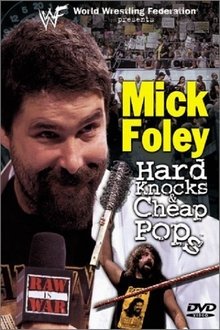
WWF: Mick Foley - Hard Knocks & Cheap Pops (2001)
He helped popularize a form of wrestling called Hardcore, he raised the bar on extremes a man will go to put on a good show. He made us laugh and gasp at his exploits. Armed with his passion for the sport and his sense of humor, Mick Foley has become one of the most popular and influential men in the federation. Now, this best-selling author speaks candidly about his career, and the business he has left an indelible sock-print on.
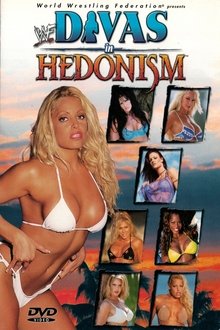
WWF: Divas in Hedonism (2001)
The women of the World Wrestling Federation travel to the Bahamas for a photo shoot, and the WWF Camera crews follow. Featuring exclusive interviews and never-before-seen footage of all the women of the WWF, including Trish Stratus, Chyna, Lita, Jacqueline & Tori and Debra.

WWE Hardcore (2001)
Welcome to the World of anything goes. Barbed wire-wrapped baseball bats, steel cages, tacks and tables & chairs are just some of the tools these artists of brutality use to take the sport to extremes the WWE and its fans have never seen before. These WWE Superstars have become legends through their sacrifices. If we said they didn't get hurt, we'd be lying. Like it hard? Then you'll friggin' love this, man! Including Jeff & Matt Hardy, Triple H, Hardcore Holly, Undertaker and many more. If you like it HARDCORE you'll love this release!
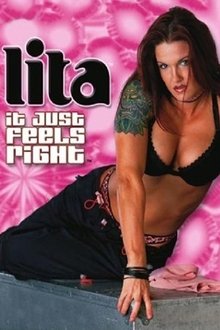
Lita - It Just Feels Right (2001)
One of the hottest women in World Wrestling Entertainment is inviting you along for the ride of your life-but we’re warning you, it’s going to be Xtreme. Lita is one of the hottest competitors in the sports-entertainment world. She had a couple of camera crews follow her and record her life as it happened. Then, she collected some choice clips from her personal collection, before she was a Superstar. The hypnotic eyes, the crimson hair, the fashion style and Xtreme attitude are all here - for you!
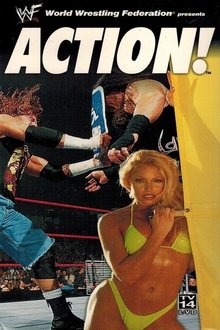
WWF Action! (2001)
WWF Action, a collection of the most memorable matches and moments in the first half of the year 2001. Whether it is Stone Cold Steve Austin or Trish Stratus your after, this video/dvd certainly has all the best action from the first half of 2001. This instalment of the WWF, covers the events from, Stone Cold Steve Austin turning heel at Wrestlemania 17, The Vince McMahon and Trish Stratus love affair, the Spike Dudley and Molly Holly ‘Romeo and Juillette’ love affair, and also including the winner takes all stakes of the legendary Invasion pay per view event. This release will keep you on the edge of your seat. Get ready for ACTION! plus lots more.
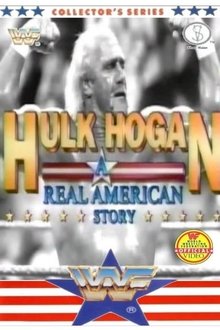
Hulk Hogan: A Real American Story (1991)
A pay-per-view special titled "Titan's Hot Ticket: Hulk Hogan - A Real American Story" featuring classic matches & segments of Hulk Hogan. Join "Mean" Gene Okerlund as he takes you on a tour of the early days of WWF Champion Hulk Hogan. Meet his parents, Pete & Ruth and get an inside look on The Hulkster. Iron Sheik vs. Hulk Hogan Wrestlemania 3 – Hulk Hogan vs. Andre the Giant Wrestlemania 5 – Randy Savage vs. Hulk Hogan Summerslam 1990 – Hulk Hogan vs. Earthquake Wrestlemania 7 – Sgt. Slaughter vs. Hulk Hogan
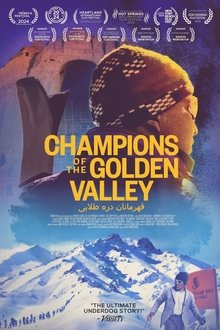
Champions of the Golden Valley (2024)
In the high peaks of Afghanistan, young athletes from rival villages build makeshift wooden skis and convene for a mountain race that unites the community in a moment of peace and triumph just before their country’s collapse. Champions of the Golden Valley merges the triumphant spirit of a classic underdog sports story with the heartfelt portrait of a community finding hope amid disrupted dreams. Revealing a stunning unseen side of Afghanistan, it is an uplifting exploration of what it means to be a champion – in all its forms.
